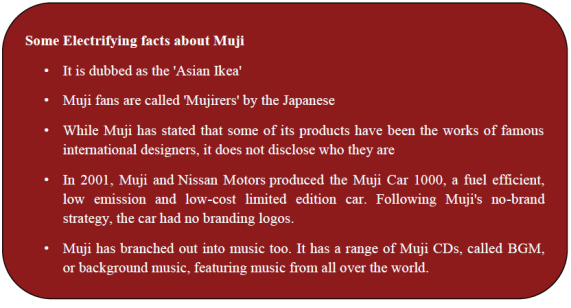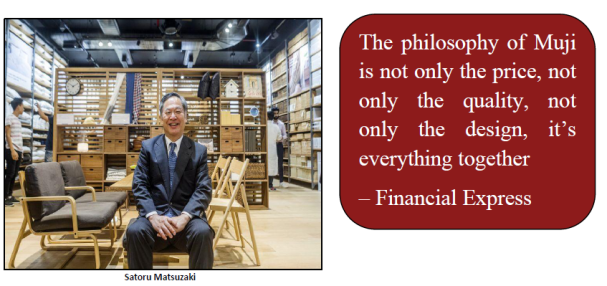Amidst all the hype revolving around selfies, fidget spinners, chokers, Snapchat and Instagram, there’s a new fad emerging among the Indian GenNext – doing what everyone else is NOT doing. Conforming to the social norm is a goal for some, but for others it’s just too main-stream. Millennials want to be engaged in experiences which are not clichéd and not being done by anybody else. They want to be fascinated by the experiences that a product has to proffer. They want something that sets them apart! More and more people are concentrating on originality rather than fitting in, and originality is becoming the new social norm.
With this increasing shift of orientation in social convention, a new ‘brand’ has stepped into the Indian retail market, following a concept of minimalism and resolute on making aesthetic and unique designs. Gone are the days when ‘consumer satisfaction’, were the buzz words. Today, it’s all about ‘consumer delight.’ With the trend changing every day, it is fundamental for a company to stay one step ahead of the consumers and capture the trend before it becomes one. Our focus for this month’s issue is a company that does just that!
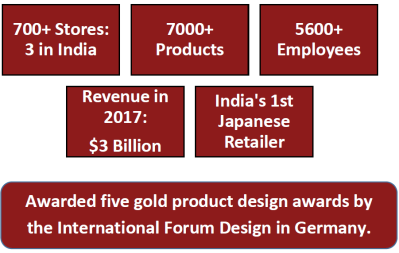
The Muji Story
Ryohin Keikaku Co. Ltd. or Muji is a Japan-based retail and consumer goods company which has its operations in over 27 countries.
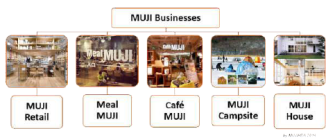 Built on a philosophy of anonymity and functionality, Muji — derived from the Japanese words ‘Mujirushi Ryōhin‘ meaning ‘no-brand quality goods‘ – has emerged as a global mainstay of simple, scaled-back design.
Built on a philosophy of anonymity and functionality, Muji — derived from the Japanese words ‘Mujirushi Ryōhin‘ meaning ‘no-brand quality goods‘ – has emerged as a global mainstay of simple, scaled-back design.
Muji was launched in Japan in 1980 and was intended to be a generic line for the Seiyu Supermarket Group, boasting the tagline ‘Lower prices for a reason‘. Muji began with a range of only forty different products, mainly food and household goods. Today, it has more than seven thousand items in store, with revenues of nearly three billion dollars in 2017.
Apart from its flagship retail and home furnishing stores, Muji has diversified into ventures such as Café Muji, Meal Muji, Muji Campsite and architectural projects such as the Muji houses. It is set to launch its first hotel in 2019 as part of the Marronnier Gate Ginza complex in Tokyo.
The Ingrained Philosophy
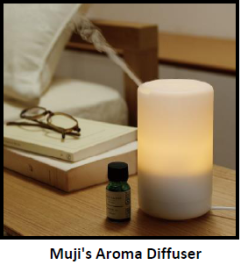
The Company believes in simplicity, ―no frills‖ and quality over flamboyance. It sells a wide variety of high quality consumer products with astute designs and minimum packaging of clear cellophane and plain brown paper, but without any superfluous logos. Muji celebrates the traditional Japanese philosophy of creating beauty and aestheticism through simplicity. Muji gives importance to recycling and reusability of its products during the production process. It carefully screens the raw – materials being used, in order to avoid adverse impact on the environment. An interesting example is selling U-shaped spaghetti – the left-over part that is cut off to sell straight spaghetti – at its stores.
Use of classic and visually appealing materials such as wood, cotton, and porcelain; a straightforward palette of white, black, and navy; and a commitment to recycled materials and reduced packaging have all earned Muji a cult following among self-described minimalists and the environmentally conscious.
What sets it apart?

Dubbed as the Asian version of Ikea, Muji sells a range of household goods, and prides itself on its minimalist design and limited waste production.
What sets it apart is its ‘no-brand‘ positioning in the market. Its website reiterates that Muji is not a brand. But paradoxically, it is the amazing clarity they have around their individuality that makes them such an original, compelling yet accidental ‘brand.‘
The ‘brand free‘ style originated as a reaction to the explosion of hyper branded environments. While it is considered popular to buy a product with a well-established brand name, Muji smartly recognizes that a growing segment of the population is becoming tired of overhyped products and inflated price tags, and is starting to gravitate towards earthier, rustic and artistic products. Muji acquires differentiation by working on the concept of simplicity and coherence. It discourages wastefulness and focuses on designing products which are elegant and tasteful.
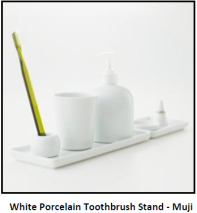 In point of fact, this concept about simplicity might come from a smart, well-planned and detailed brand augmentation approach. Even without the use of any logo or distinctive packaging, the customers know that they are buying a Muji product. Due to the strong brand awareness and brand experience already set in place, most people immediately recognise Muji‘s trademarked lack of packaging.
In point of fact, this concept about simplicity might come from a smart, well-planned and detailed brand augmentation approach. Even without the use of any logo or distinctive packaging, the customers know that they are buying a Muji product. Due to the strong brand awareness and brand experience already set in place, most people immediately recognise Muji‘s trademarked lack of packaging.
Muji products are characterised by their amazing attention to detail along with consistent adherence to their base values of simple designs and efficient operations. The end-goal for Muji is to provide quality products at lower prices than usual. From the procurement of materials to the manufacturing and packaging processes, every element is up to date and well-organised. Muji exudes minimalism.
Muji believes that the most important thing is to understand and respond to the evolving and distinctive needs of its average customer. Consumers are its top priority and source of ingenuity and inventiveness. It aims at arriving at a panacea for the requirements of its patrons, while maintaining its core principles of individuality and uniqueness.
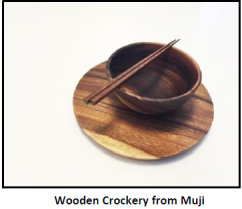
Muji understands that people don‘t buy everything for logical reasons, but for emotional reasons. It invites anyone and everyone to share in its philosophy on consumerism, by declaring it openly. When you shop at Muji, you are making a statement about yourself that you believe in originality and individuality. You buy Muji because it dissolves the fine line that exists between want and need. It becomes a way of life. That‘s the enchantment of Muji.
Let’s get Technical!
Muji is a classic example of a generic brand, distinguished by the absence of a brand name but identified by product characteristics. However, it has become an international brand of its own, and it is debated whether it was an intentional marketing strategy using reverse psychology, or if it was an authentic case of accidental branding.
Muji‘s popularity can be majorly attributed to word-of-mouth marketing. It combines the symbolism of the anti-brand movement with a simple and day to day experience of shopping.
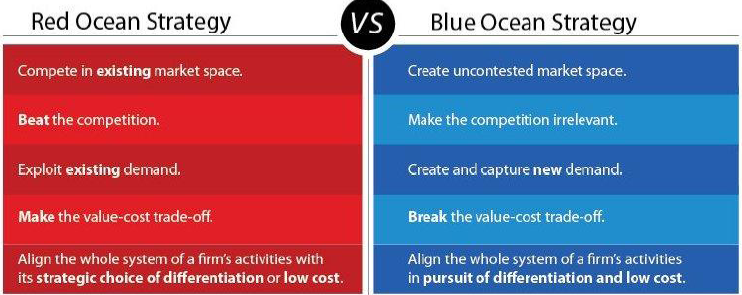
Muji can be connected to the Blue Ocean Strategy – By differentiating their products with their ‘no-brand‘ approach, they created an uncontested market space for products which are simplistic and basic. Muji stood out when the trend was to run after brands with superfluous logo and its competitors were fervently promoting and advertising their brands. Muji‘s subtle approach caught the attention of customers who longed for something unique and different. Through their unconventional marketing and product differentiation, they made their competition irrelevant.
In its Domestic market i.e. Japan, Muji applies cost leadership strategy. It sells its products at relatively low prices through production efficiency, streamlining the production process and minimum advertising. This helps in getting competitive advantage.
In international markets, Muji adopts a strategy of Product differentiation by selling uniquely designed products, which are found to be more appealing by customers because of their artificially elevated prices. It helps in creating a favourable perception among the buyers about the novelty of the products. None of Muji’s 7,000 products, including beds, dishes, jackets and notebooks have a logo or are wrapped in distinctive packaging.
Muji follows a crowdsourcing model, which allows customers an outlet to produce a better product. This helps in keeping the designs and ideas fresh and also satisfies the consumers as they are able to see their work showcased. Most importantly, it reduces the inherent risk attached to any new product as the producer knows that the product is in demand and the consumers have faith in their own products. This method creates a new type of relationship between consumers and the producer – one that allows a two way bond of efficiency, dependence and reliability.
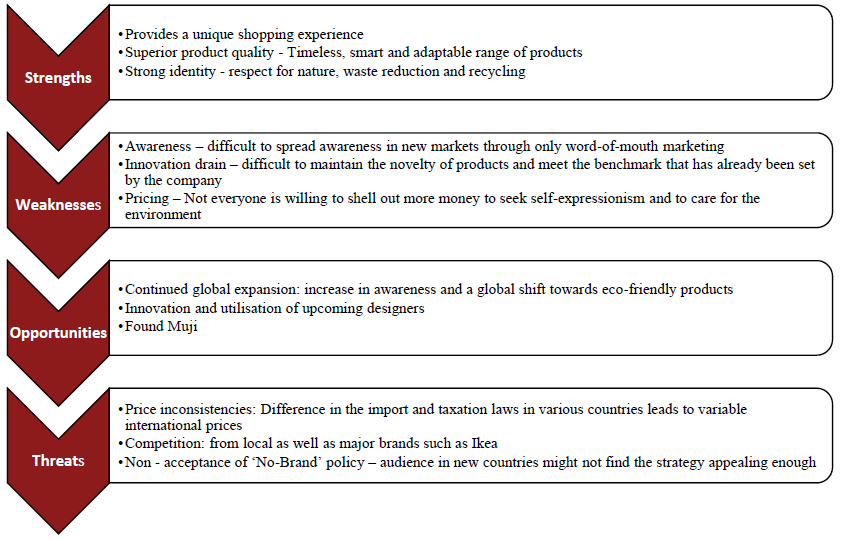
Muji In India

In 2015, Reliance Brands, a unit of Mukesh Ambani-led Reliance Industries, had struck a joint venture with Muji. After setting camp in over 28 countries, Muji opened its first store in India at Mumbai‘s Palladium Mall and followed it up by opening a second store at Bengaluru‘s VR mall in 2016.
With the launch of its third store in Select Citywalk in New Delhi, Ryohin Keikaku – the company behind MUJI – plans on opening one or two stores every year.
They have carefully curated their iconic products for the Indian market. The Delhi store covers product categories like beauty, home, travel, kitchen, stationery, kids wear, fashion, storage and more. However, Muji’s merchandise line-up in India is very limited. Its store in New Delhi, which is double the size of the first one at Mumbai at 440 sq. meters, sells only about 2,500 items.
The major challenge that Muji has been facing in India is the existence of customs and clearance duties during import, which is reducing the variety available and at the same time increasing the price of the products being sold. Unlike in Japan, the Muji stores in India do not sell food products due to the cumbersome procedures to clear local regulations and customs. Muji is also having a hard time pitching clothes in India as a good number of the Indian audience famously has a strong penchant for clothing items with bright colours. To broaden the line-up, Ryohin Keikaku has been exploring local procurement options and is getting the added advantage of its joint venture with Reliance Brands.
There is an impending question of Muji‘s acceptance into the Indian market. Its future hinges on how well the company is able to instil its philosophy of simplicity and elegance into the Indian consumers and how soon it identifies and speaks to that affluent section of the Indian society which truly appreciates this philosophy.
